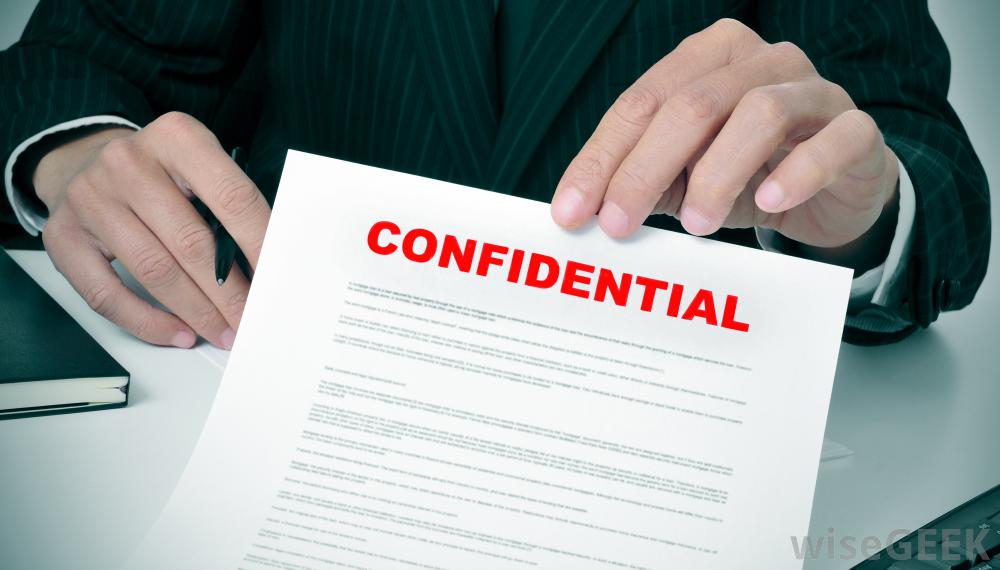This article has been written by Ankita Pal pursuing Diploma in Intellectual Property: Prosecution, licensing and litigation and edited by Shashwat Kaushik.
This article has been published by Sneha Mahawar.
Table of Contents
Introduction
Companies, while developing intellectual property, must take measures to prevent infringement of intellectual property and maintain confidentiality so that no other entity or person can get to know the details of such intellectual property and try to copy it. The confidentiality of IP helps in maintaining its uniqueness. Therefore, one must evaluate its importance and resort to Non-Disclosure Agreements to ensure that confidentiality is maintained.
Meaning of Intellectual Property Rights (IPR)
These are legal rights governing the use of the human mind. The recognition and protection of these rights are of recent origin. Patents, designs and trade marks are considered intellectual property. One of the main purposes of IPR is to exclude third parties from exploiting protected subject-matter without explicit authorization from the right holder for a certain duration of time. It helps with the creative and inventive activity of the orderly marketing of proprietary goods and services.
Meaning of confidentiality
Confidentiality refers to the practise by which one must protect the information or the essentials of a product or any other thing that makes it different from other products or things. To prevent any other person or entity from duplicating the uniqueness of a specific product that resulted from the addition of a special element, it is crucial to maintain confidentiality.
Ways to manage confidential information
Creating agreements, policies, records, and procedures to establish protection
Non-disclosure agreements and confidentiality agreements are two of the most important aspects of protecting confidential information. Courts consider it to be praiseworthy because it helps maintain confidentiality as evidence. Companies must also consider making policies so that they have an idea of how to protect the uniqueness of their IPR. To maintain confidentiality, companies can implement procedures like asking their employees to return confidential information when leaving the company or not letting third parties or employees have access to the full process, formula or other kinds of sensitive information.
Companies and individuals must have electronic access and physical control over the IPR
Physical and electronic security are very important for protecting intellectual property and courts are appreciating them. Companies and individuals who have intellectual properties must restrict system access so that competitors have no access to the secret formulas or confidential valuables that are added to the IP.
One must identify and assess steps to manage risks
It is impossible to make a case of theft of confidential information until and unless one has identified the information that must be considered confidential and upon whose theft there will be an infringement of intellectual property rights. Upon identification, one must also assess the risks pertaining to theft of confidential information, as in, in what ways or the level of damage it can cause the particular IP whose information has been leaked. Courts have considered companies putting reasonable efforts into managing confidential information when they have put particulars of the IP in a trade secret registry.
Training to employees and vendors
Training given to employees and vendors is essential so that they know how to handle confidential information. Several companies have won theft cases against former employees based on their corporate training procedures.
Create supply chain procedures and plans
Third parties, including vendors, suppliers, distributors and even customers, can have access to a company’s trade secrets for manufacturing, product development and various other purposes. As there is a potential source of misappropriation, it is vital to have regulatory processes that regulate confidentiality so as to protect it.
Make continuous improvements and updates
Efforts to maintain confidentiality with respect to IP must be monitored annually and they should be ongoing. Procedures to maintain consistency and assurance of compliance must be there. In ‘breach of confidential information cases’, courts have examined corrective actions as criteria to determine whether the company has taken reasonable steps to protect its confidentiality with respect to IP.
Company must delegate the management of confidential information to a team of employees
The company must delegate the responsibility of managing confidentiality to a team of people. Courts have not looked favourably on companies that do not have anyone in charge of the management of confidentiality. There must be a team with representation from those who can ensure that confidential information is protected.
Cyber threats, digitization of information and the change of employees from one company to another have become common these days, which leads to the leakage of confidential information related to IP, which is one of the most valuable things about a company. Companies must boost security and put systems in place to ensure the protection of confidential information. This helps companies mitigate risks and also looks into the fact that confidential information pertaining to IP is not compromised. If not done so, companies are at a huge risk of losing their revenue, reputation and competitiveness.
Role of Non-Disclosure Agreement (NDA)
Confidential policies must be introduced by companies and all employees must be given access to them via the intranet. The policies should place special emphasis on the situation when an employee leaves that particular company. That employee must be reminded of leave protocols on resignation to mitigate the theft of confidential information in relation to IP and they must be reinforced during exit. A company would always like to maintain a good reputation in the market but taking appropriate enforcement action with regard to managing confidential information, or rather, leakage of confidential information by employees or third parties, often finds the need to take action less over time as it develops a reputation for swift enforcement action.
Therefore, the need for Non-Disclosure Agreement is important. They should not be considered standard documents. Non-Disclosure Agreements must refer to the specific information being disclosed and the permitted use of that information. What might constitute confidential information must be used , going beyond merely a high level of information marked as confidential, to ensure the NDA gives the best possible scope of protection.
NDA’s are living documents. They should be monitored and adapted if necessary as the discussion progresses. Parties subject to NDA’s cannot misuse or leak confidential information. The disclosing party will have a contractual remedy in such circumstances, but the confidentiality of the information will never be re-captured. That might lead to the disclosure of the business to evaluate and change the business model to make the business more competitive.
Judicial precedents
Dr. Sudipta Banerjee vs. L.S. Davar and Company and Ors. (2022)
In Dr. Sudipta Banerjee vs. L.S. Davar and Company and Ors. (2022), the Calcutta High Court gave its order dated April 5, 2022, wherein it passed an injunction order against the former employees of a law firm. The reason being disclosing confidential information and trade secrets gathered by them during the course of their employment. The Court had also opined that it is unethical of any employee to disclose information that is confidential in nature and would also breach the confidentiality clause in their service contract, causing prejudice to the law firm.
Burlington Home Shopping Pvt. … vs. Rajnish Chibber (1995)
In Burlington Home Shopping Pvt. Ltd. vs. Rajnish Chibber (1995), the defendant was the former employee of the company who used the database of the company to start a similar business. Delhi High Court held in his order dated October 20, 1995, that the database that the defendant utilised was the result of the hard work of the company (plaintiff). Therefore, it is protected under the law relating to trade secrets and confidential information.
Navigators Logistics Ltd. vs. Kashif Qureshi and Ors. (2018)
In Navigators Logistics Ltd. vs. Kashif Qureshi & Others (2018), the plaintiff sued its ex-employees for infringement of copyright and breach of confidentiality for stealing data. The Delhi High Court, in its order dated September 17, 2018, held that, even if a list prepared by the plaintiff of its customers with contact numbers/persons were to qualify as an original, literary , dramatic, musical or artistic work (it cannot be a cinematographic film or sound recording), copyright would not vest therein unless the said list had been published or if the said list, if unpublished, was authorised by a citizen of India. Therefore, the plaintiff had not made a case for being granted a permanent injunction.
Saltman Engineering Co. vs. Campbell Engineering Co. (1948)
In Saltman Engineering Co. vs. Campbell Engineering Co. (1948), Saltman challenged Campbell when he used his drawings for their own purposes. Campbell was of the opinion that there is no contract treating the drawings as confidential. Lord Greene observed that it does not matter whether there is a contract or not. What matters is that Campbell knew that the drawings belonged to Saltman and were confidential. Hence, there was a breach of confidence in this case.
Conclusion
A common trend which has emerged is that there are organisations that are trying to hamper the business of their competitors by instituting IP infringement suits on the basis that an ex-employee has shared their confidential information with the new organisation or has used in his own business and this amounts to infringement of their IP, whether it is trade secret, copyright , patent, design, etc. Therefore, every organisation, company and business must resort to Non- Disclosure Agreement, Employer-Employee Contract so as to keep a check on breaches of confidential information and also to mitigate the risks of leakage of confidential information. Different forms of IPR require different ways of handling them. Each industry must make its own IP policies, management styles, and strategies depending on its area of specialisation.
References
- Dr. B.L. Wadhera, Law Relating to Intellectual Property
- https://www.pinsentmasons.com/out-law/guides/getting-ip-order-protecting-confidential-information
- https://www.wipo.int/wipo_magazine/en/2016/01/article_0006.html
- https://www.wipo.int/tradesecrets/en/
- https://blog.ipleaders.in/protection-of-trade-secrets-and-confidential-information-in-india-and-global-trends/
Students of Lawsikho courses regularly produce writing assignments and work on practical exercises as a part of their coursework and develop themselves in real-life practical skills.
LawSikho has created a telegram group for exchanging legal knowledge, referrals, and various opportunities. You can click on this link and join:
Follow us on Instagram and subscribe to our YouTube channel for more amazing legal content.
 Serato DJ Crack 2025Serato DJ PRO Crack
Serato DJ Crack 2025Serato DJ PRO Crack












 Allow notifications
Allow notifications


